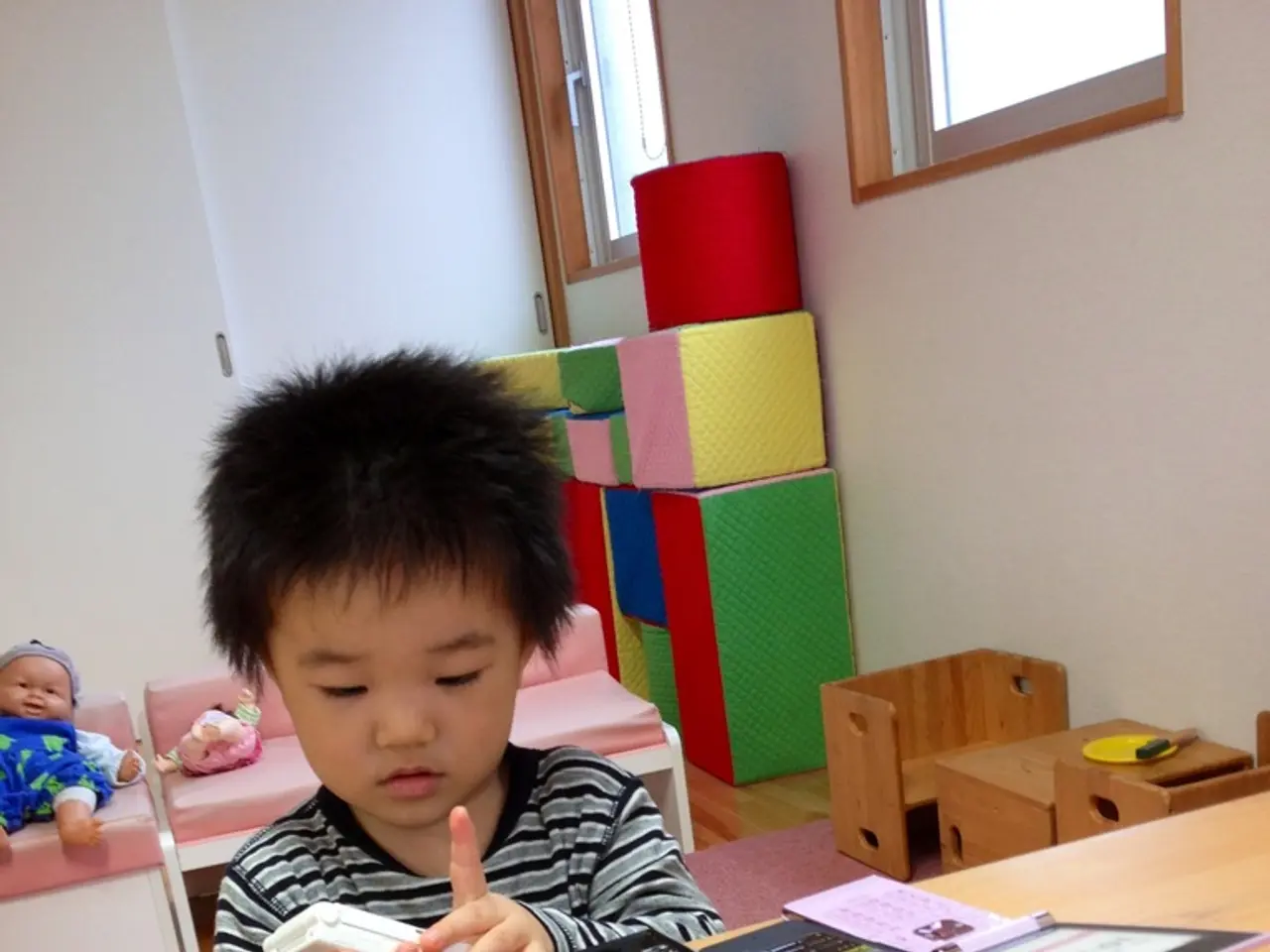School smartphone usage subject to new presidential decree
Government Implements Nationwide Smartphone Ban in Schools
The Government of our country has announced a new policy that will ban the use of smartphones during all school hours for students up to the 9th grade. This policy, known as the "bell-to-bell smartphone restriction," aims to create a distraction-free learning environment in schools.
The policy, which will come into effect from the next academic year 2025/2026, prohibits the use of smartphones throughout the school day, including class time, breaks between classes, and lunchtime. The restriction applies to students in elementary and middle schools, encompassing all grades up to 9th grade.
In the elementary cycle (early grades), the ban is total, while in the middle cycle (up to 9th grade), the ban is also bell-to-bell. High school students may have more limited bans, typically prohibiting phone use only during instructional time, not necessarily the entire day.
The policy is modelled on similar initiatives in other states and countries, such as New York and France, where schools have reported positive impacts on academic performance and a decrease in bullying and indiscipline.
The Government's bill, which was published on the Presidency of the Republic's website, does not specify the consequences for students who violate the restrictions. It also does not detail the measures for enforcing the restrictions. However, it takes into account the constitutionally consecrated legislative autonomy.
A study conducted by the Center for Planning and Evaluation of Public Policies in September 2024 found that more than half of the schools that prohibited 'smartphone' use reported a decrease in bullying and indiscipline. The study, however, was not mentioned as a factor in the bill's promulgation, publication, or receipt of favorable opinions from the Council of Schools and the quality of providing an experience, susceptible to subsequent evaluation, of potential pedagogical interest.
The bill was met with reservations from AEEP, CONFAP, and particularly CNE. Despite this, it was approved on July 3rd in the Council of Ministers and was later promulgated by the President of the Republic.
Schools that opted for the prohibition of 'smartphones' reported the greatest impacts on the reduction of bullying and indiscipline. In the 2nd cycle (59% and 53.6%), 3rd cycle (57.8% and 57.4%), and secondary (55.6% and 59.5%) schools, the decrease was significant.
In the 1st cycle of schools, only 21.3% did not adopt the recommendation to prohibit 'smartphones', while 59.1% of 2nd cycle schools did not do so. In the 3rd cycle, 24.9% prohibited the use of these devices, and only 7.6% of secondary schools did so.
The new policy is part of the Government's efforts to improve the quality of education and create a more conducive learning environment for students. As the policy is implemented, schools will be expected to enforce the restrictions consistently and ensure a phone-free environment throughout the school day for Basic Education grades.
This new nationwide smartphone ban in schools, part of the Government's education-and-self-development policy, mirrors initiatives in politics globally, such as New York and France, demonstrating a shift towards policy-and-legislation regulating tech usage in the educational sector. The ban, set to begin in the 2025/2026 academic year, aims to reduce distractions and improve academic performance, as indicated by general-news reports of decreased bullying and indiscipline in schools that have already implemented similar measures.




